Google has said links are less important than they used to be, and most SEOs have come to accept that as true. Our findings indicate that this is true overall, but for certain types of queries, links matter more.
I still believe that links should be a part of your SEO strategy, but they shouldn’t be your whole strategy. A while back, I answered the question, “Do links still matter for rankings?” by disavowing all links to a few blogs. Traffic and rankings fell, so yes, links still matter.
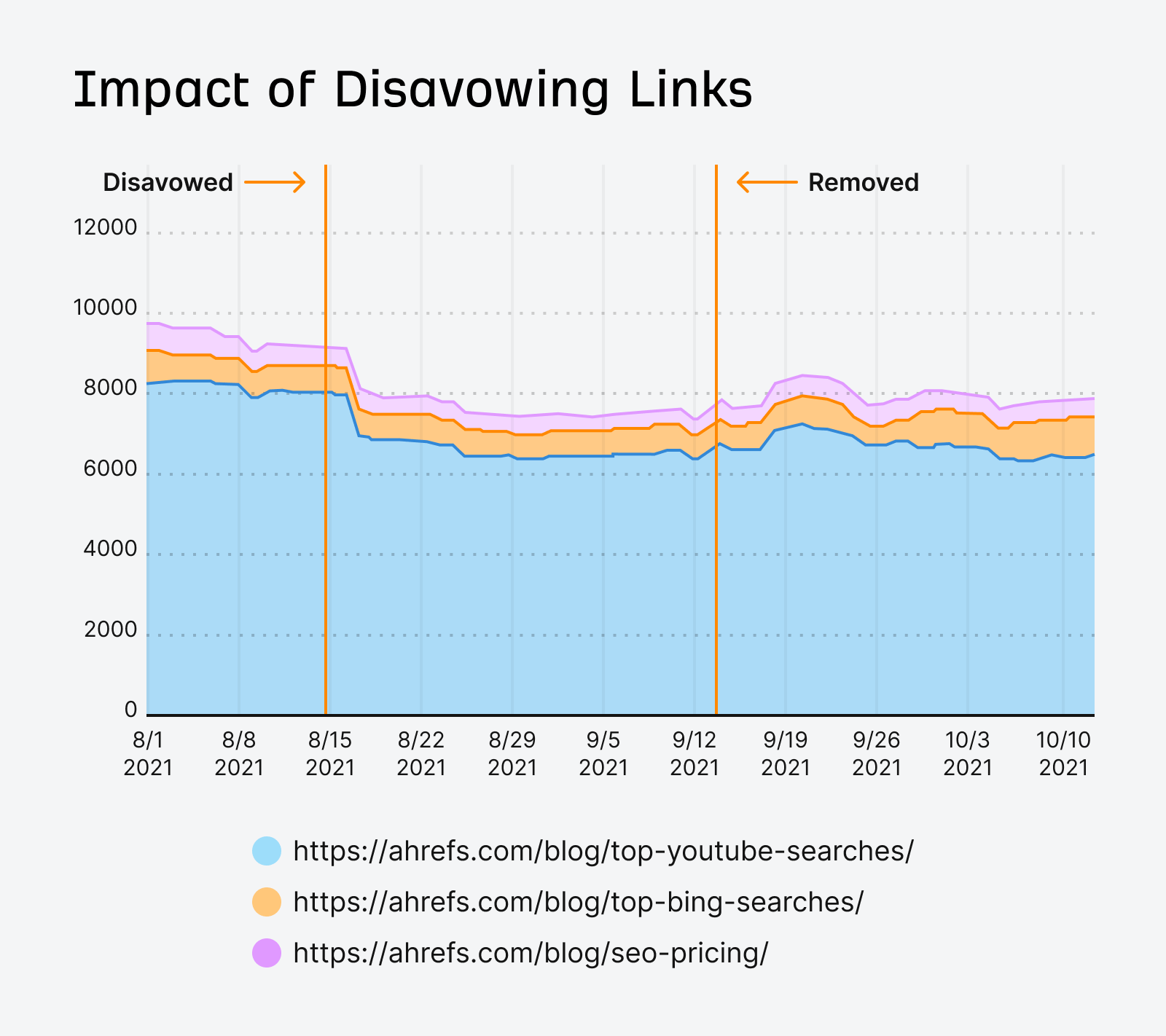
This time, I was curious if the importance of links had changed over time. I also was curious if we could segment the data to see when links matter more, and when they matter less.
Let’s dig in (after a huge thanks to our data scientist Xibeijia Guan for doing all the hard data parts of this study, and to our CMO Tim Soulo for his input).
- Domain rating: 0.131
- Number of backlinks: 0.248
- Number of followed backlinks: 0.242
- Number of refdomains: 0.255
- Number of followed refdomains: 0.250
- Number of internal inlinks: 0.117
- Number of internal outlinks: 0.093
- Number of external outlinks: 0.083
- If keywords present in URL: 0.034
- Length of URL: -0.107
I want to give all the normal warnings like Correlation ≠ Causation. These are generally considered weak correlations or even very weak correlations on the Spearman scale, but that doesn’t mean that these things aren’t important. There are a lot of ranking factors and links do play a role in your rankings.
Here are a few box plots to show the data visually for important metrics. In case you’re seeing box plots for the first time, here’s how you should read them:
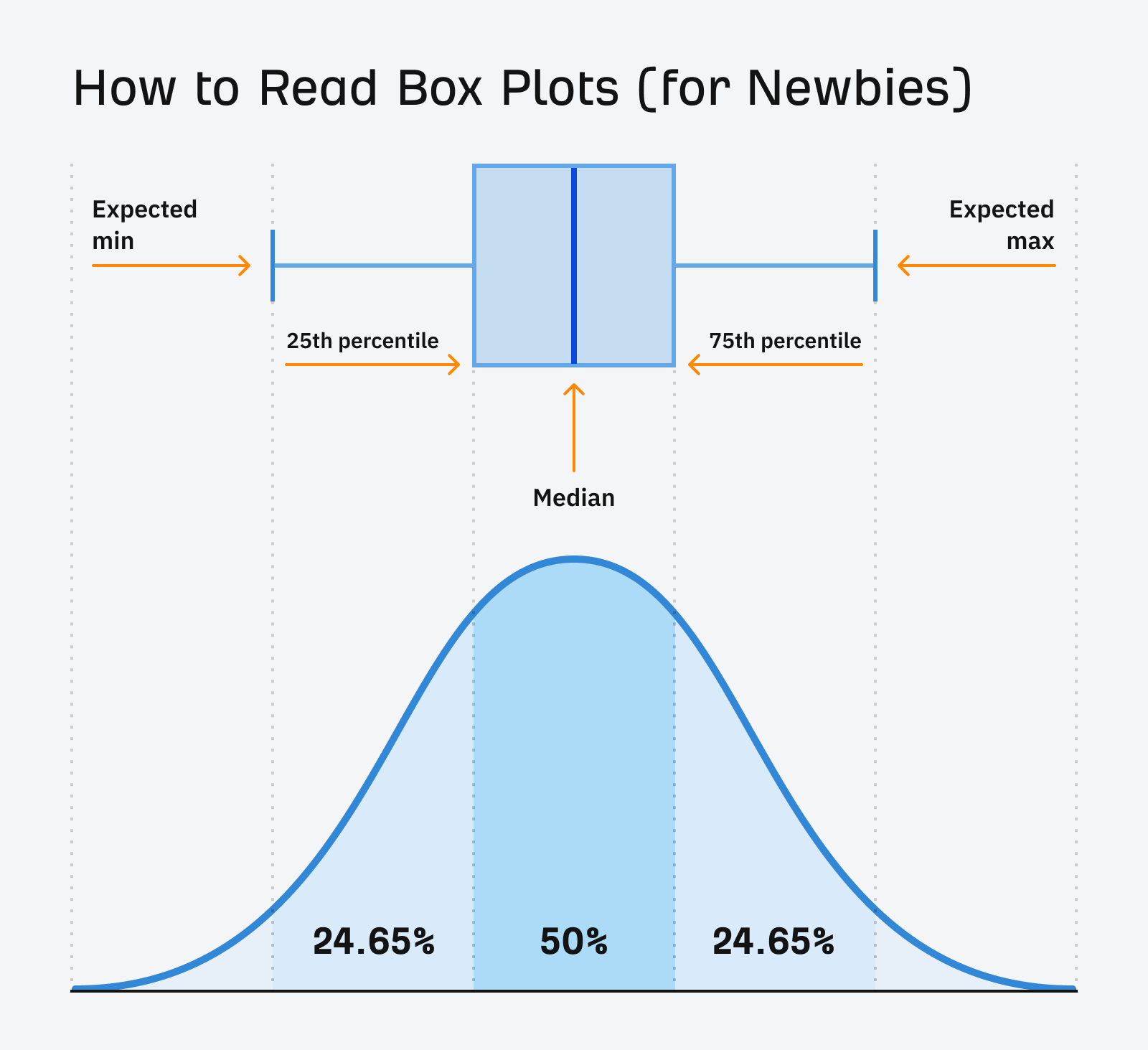
The small lines on the edges represent the minimum and maximum values. And 50% of all values fall in the highlighted areas. The line in that area is the median value.
Generally, better link metrics = higher rankings.
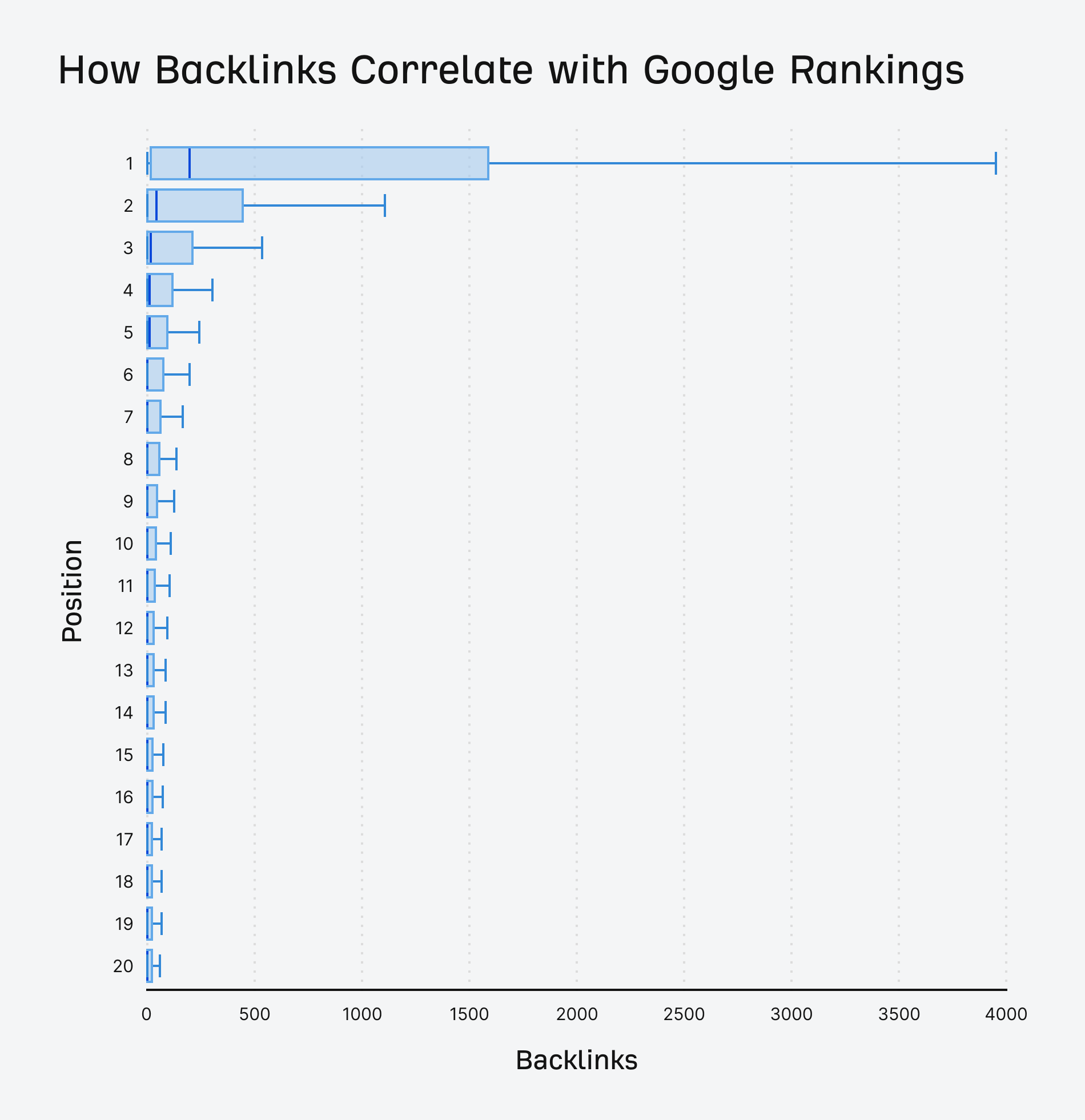
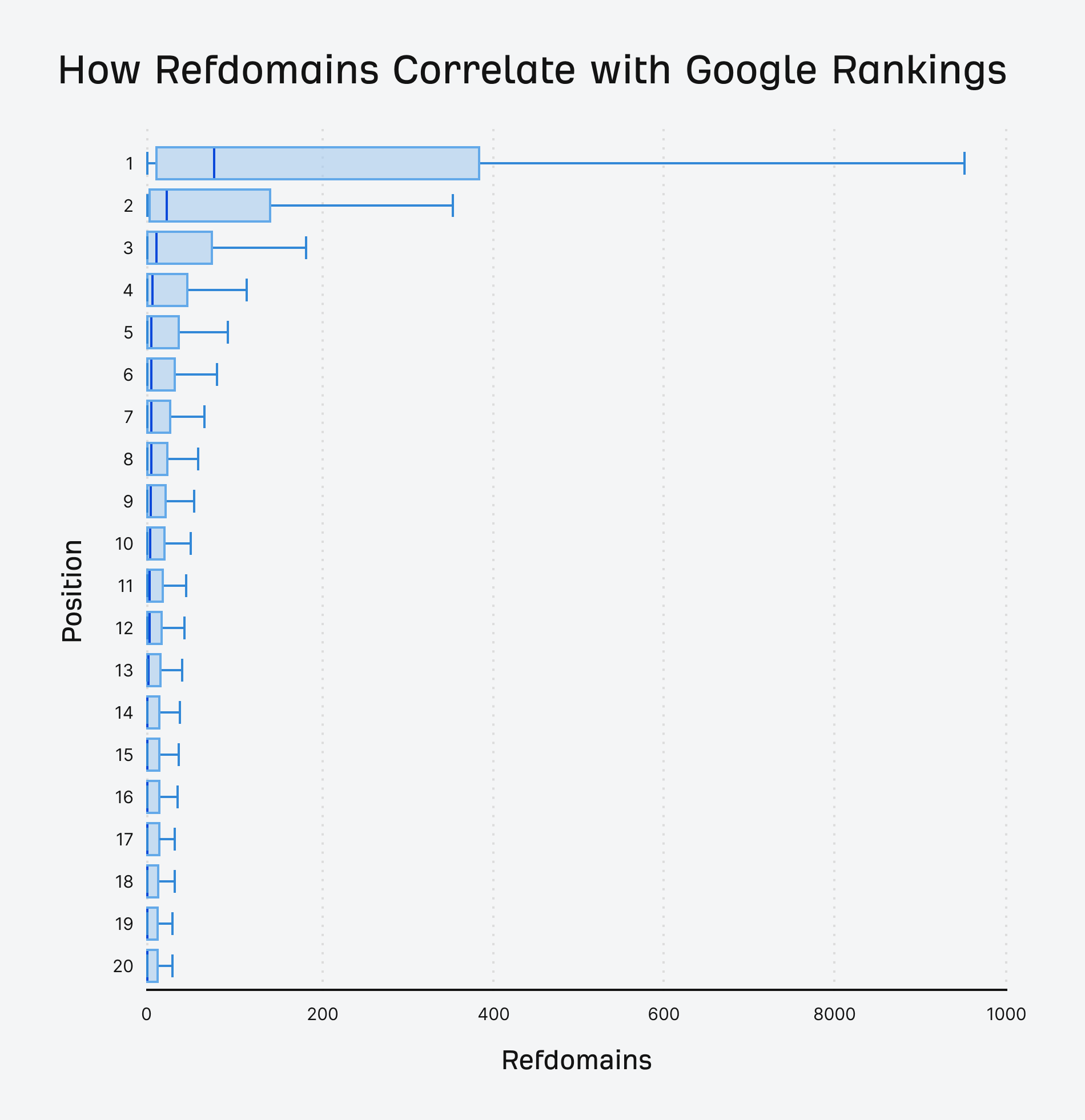
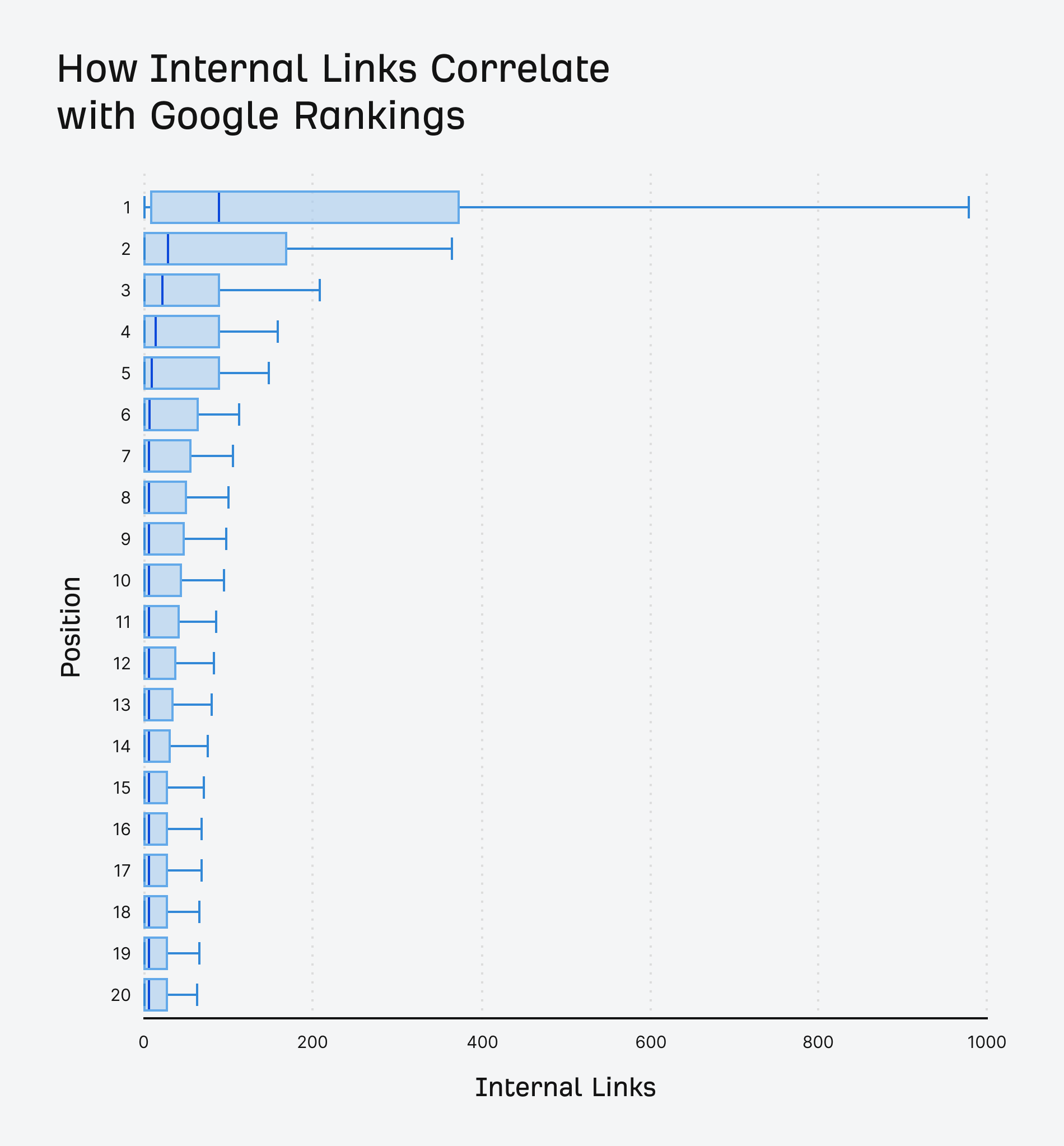
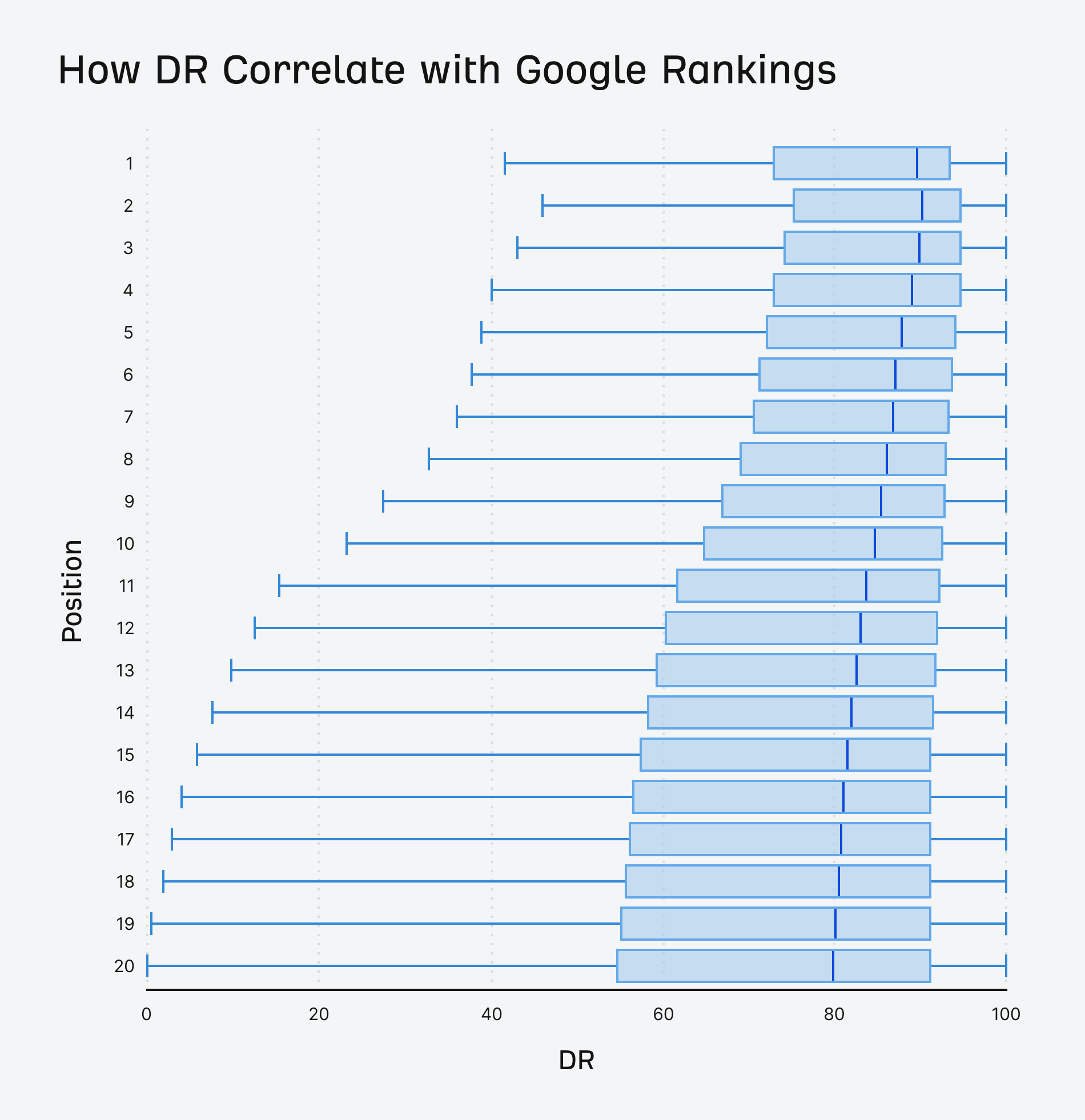
The methodology was a bit different. It was low volume (2,000–5,000), non-branded queries. I can’t do an exact comparison, but the correlations were higher at the time:
- Links: 0.27
- Followed links: 0.25
- Referring domains: 0.29
- Followed Referring Domains: 0.26
The current correlations for these metrics and similar queries are 0.22–0.24, and may be slightly lower than that for non-branded terms as I mentioned before.
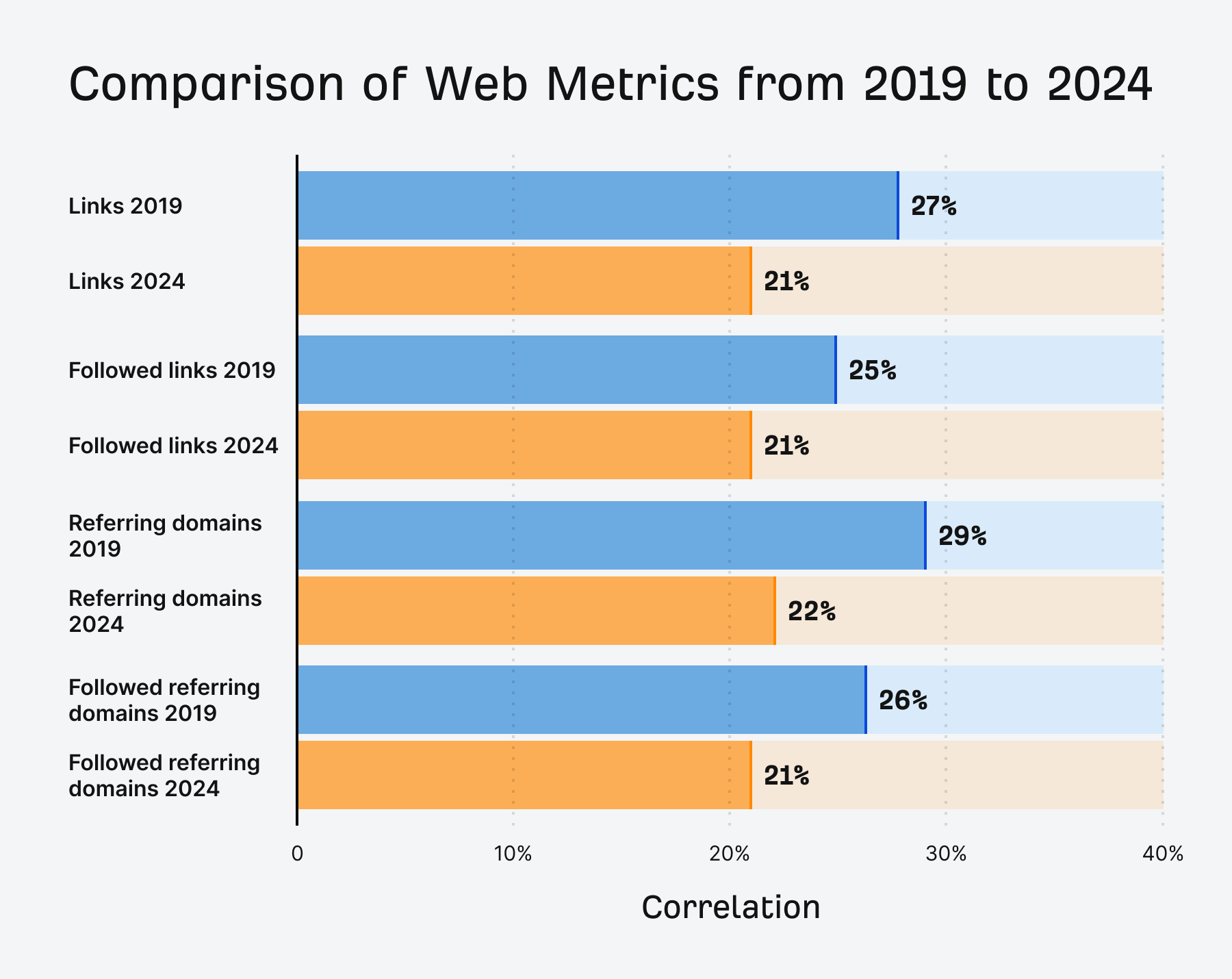
This is in line with Google comments on links becoming less important and how SEOs perceive them. However, one of the reasons I wanted to run this study is to see how this changes in the next couple years. With the rise of AI content, I suspect Google may end up relying on links or other signals more, and may start weighting them higher.
Links and RDs correlated at .33 for local queries, which is a lot higher than what we’ve seen and even higher than what we saw overall years ago. I suspect that because content on sites for local service companies is very similar, links make a good differentiator to see which company is popular.
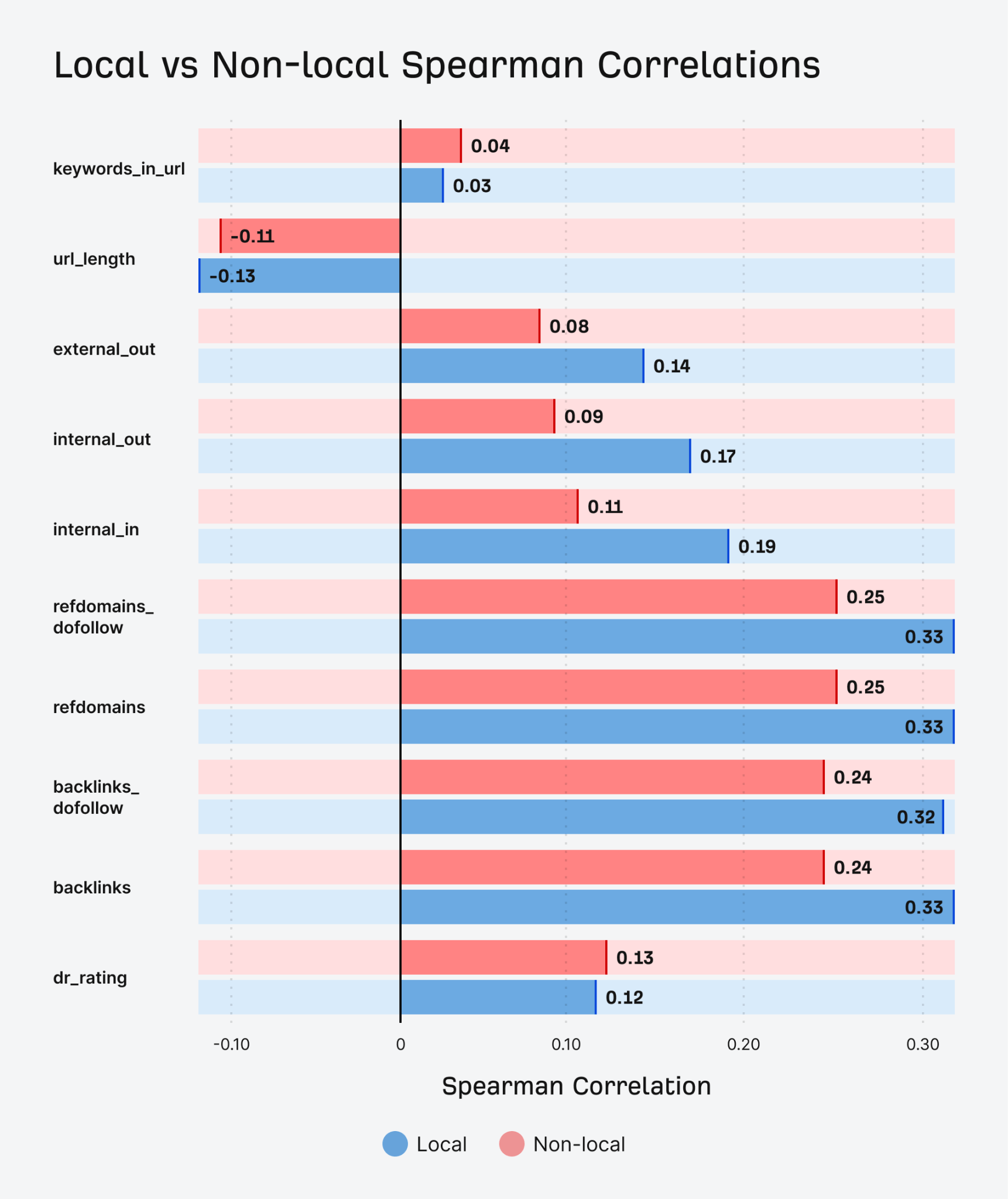
I want to point out that internal links seem to matter a lot more for local queries. I suspect there are fewer external link signals for these queries, so the additional signals from internal links become more important.
If we look at the data by search intent, navigational queries have the highest correlation. These are mostly branded, and as I said, brands have more links.
What’s more interesting is that backlinks for informational queries seem to have a higher correlation for rankings than commercial and transactional queries.
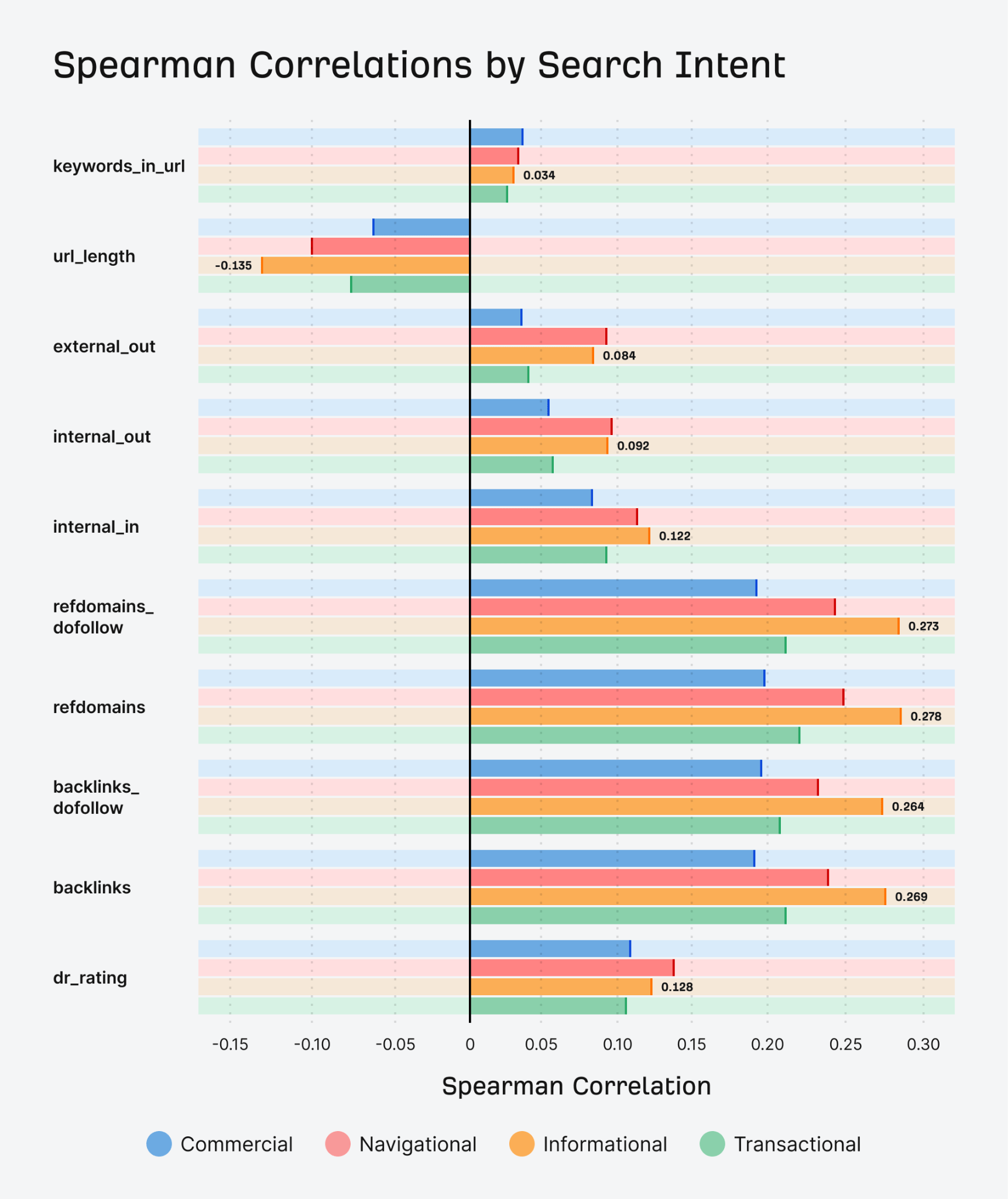
I suspect that because competition levels for these terms are high, links may be considered a good signal by Google. It could also be that better content ends up getting more links over time.
Final thoughts
Links are one part of a bigger ranking puzzle, but you still need to do other things well, like create great content. Where Google has more signals, they may rely less on any one signal. Where they have fewer signals, they may rely more on things like links. In high-competition areas where content may be strong, they also may rely on link signals as more of a differentiator.
The way I view it is that companies, especially local companies, probably should focus on at least foundational links. Larger companies likely already have marketing efforts and content bringing them links, so links may not be as much of a priority. However, when pages for large companies need a push, I’ve seen even internal links give a nice boost.
Similar Posts

What is Domain Privacy Protection & Do I Need It? A Guide to Protecting Information
In this article, we explore what domain privacy protection is and why it matters. You’re busy securing your domain. It’s the name you’ve always wanted, so you’re super excited. Then, you notice the option to add domain privacy protection. Wait… say what, now? Domain privacy protection? Well, domain privacy protection is just what it says…
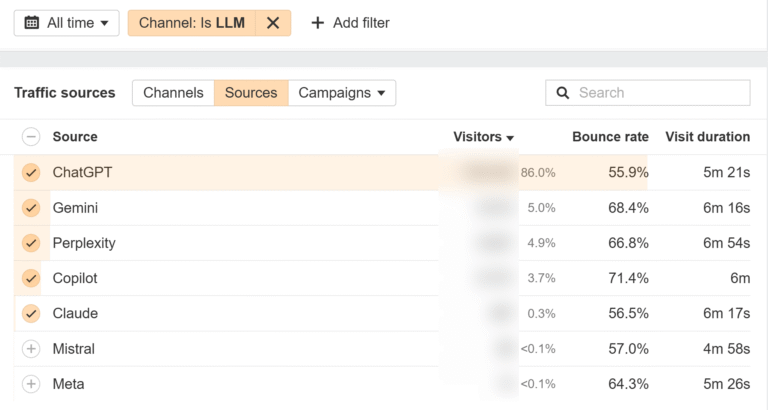
Generative Engines Are Breaking Web Analytics and Hurting Their Future
Search is moving from traditional search engines to generative engines, but traffic from many of these sites isn’t being tracked properly in analytics. It’s their fault, not yours. I was looking at our LLM filter in Ahrefs Web Analytics and noticed some common generative engines missing from the list. They’re in our filters, but we aren’t…
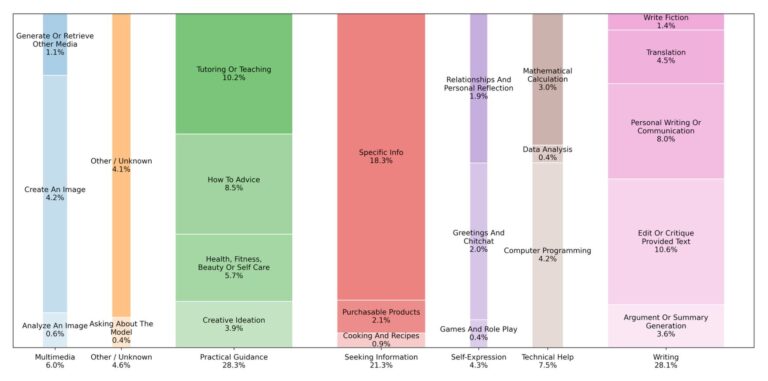
How to Monitor and Win Brand Mentions in AI Answers
Brand mentions happen when people talk about your company online without necessarily linking to your website. They’ve always happened on social media, forums, news sites, and blogs. But now they’re happening in AI responses—and these mentions influence how millions of people discover and perceive your brand. Welcome to the new era of brand mention monitoring. ChatGPT,…

What Are Referring Domains? A Guide to Referring Domains vs Backlinks + SEO Impact
New to the world of referring domains? Let’s take a look at what they are and how you can use them. Know as much about referring domains as you do about the amount of water on Mars? Well, for any business with an online presence, getting traffic to your website, upping engagement, and building brand…

AI Marketing Examples: 13 Times AI Actually Delivered
Every AI marketing disaster you’ve seen—the cringeworthy fake influencers, the obviously robotic copy, the brands caught lying about AI use—happened because someone thought AI could replace strategy, creativity, or authenticity. The examples in this article prove the opposite: AI’s value is removing grunt work and constraints, not replacing the humans who understand your market, your…
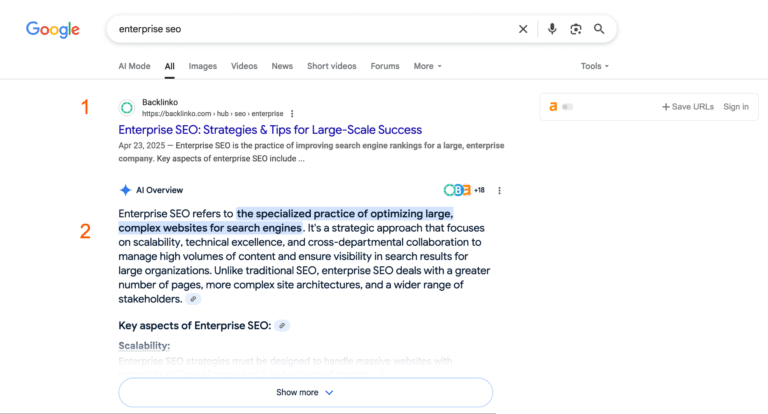
8.64% of AI Overviews Appear Outside Position #1 (And as Low as Position #6)
Get the week’s best marketing content AI Overviews aren’t always in the first position in the SERPs. For example, here’s an AI Overview in the 2nd position. See where AI Overviews appear outside of position 1 You can use the SERP features filter along with the Position filter to find some of the AI Overviews outside…
